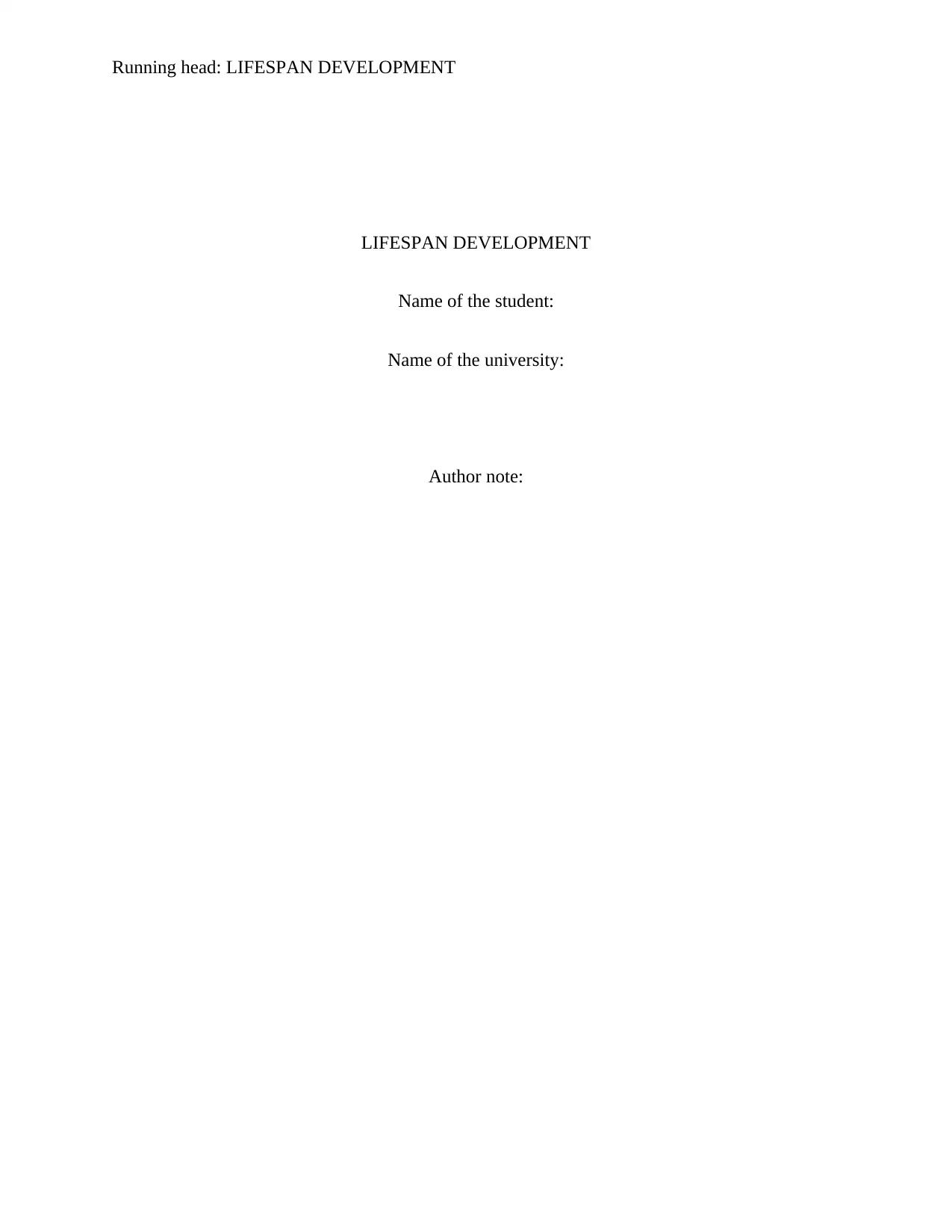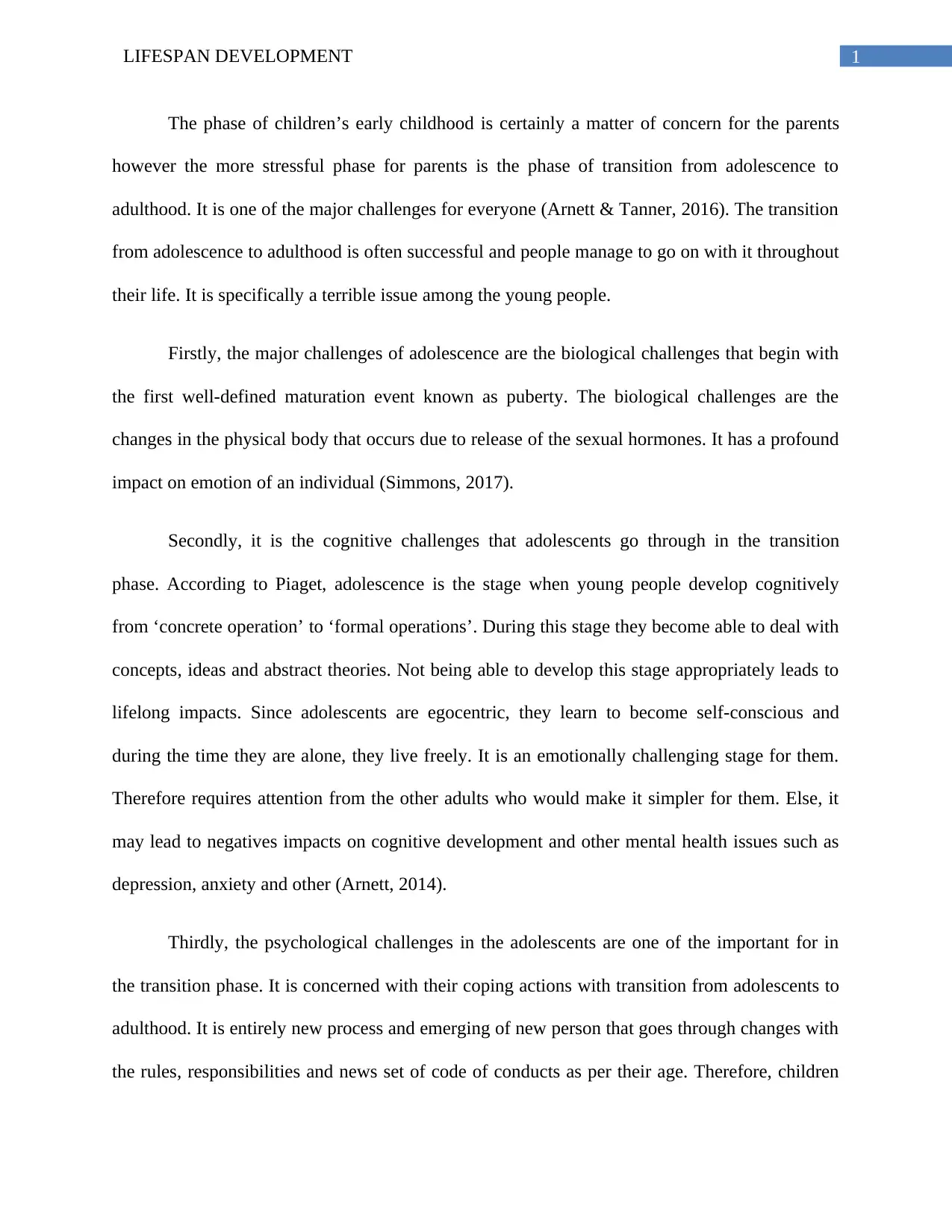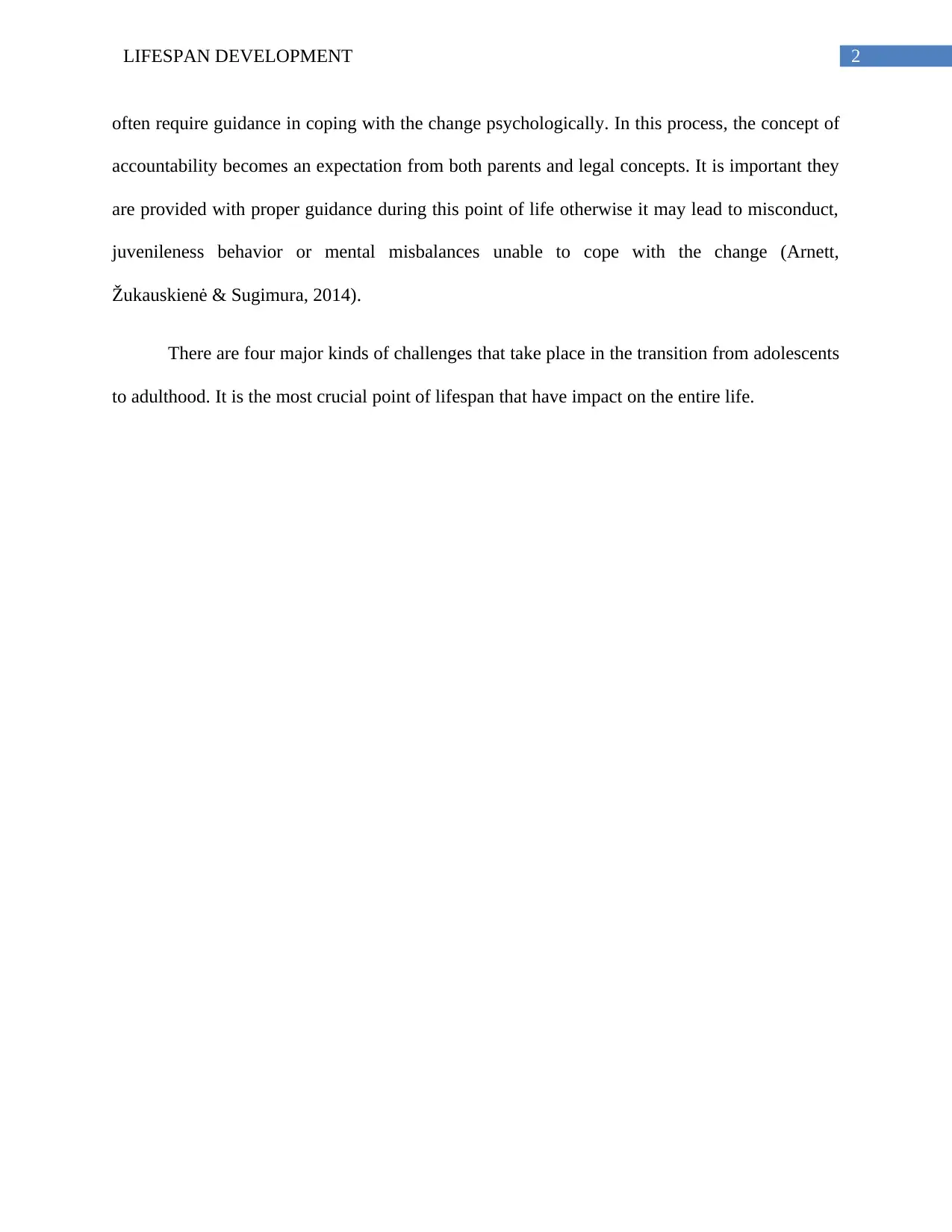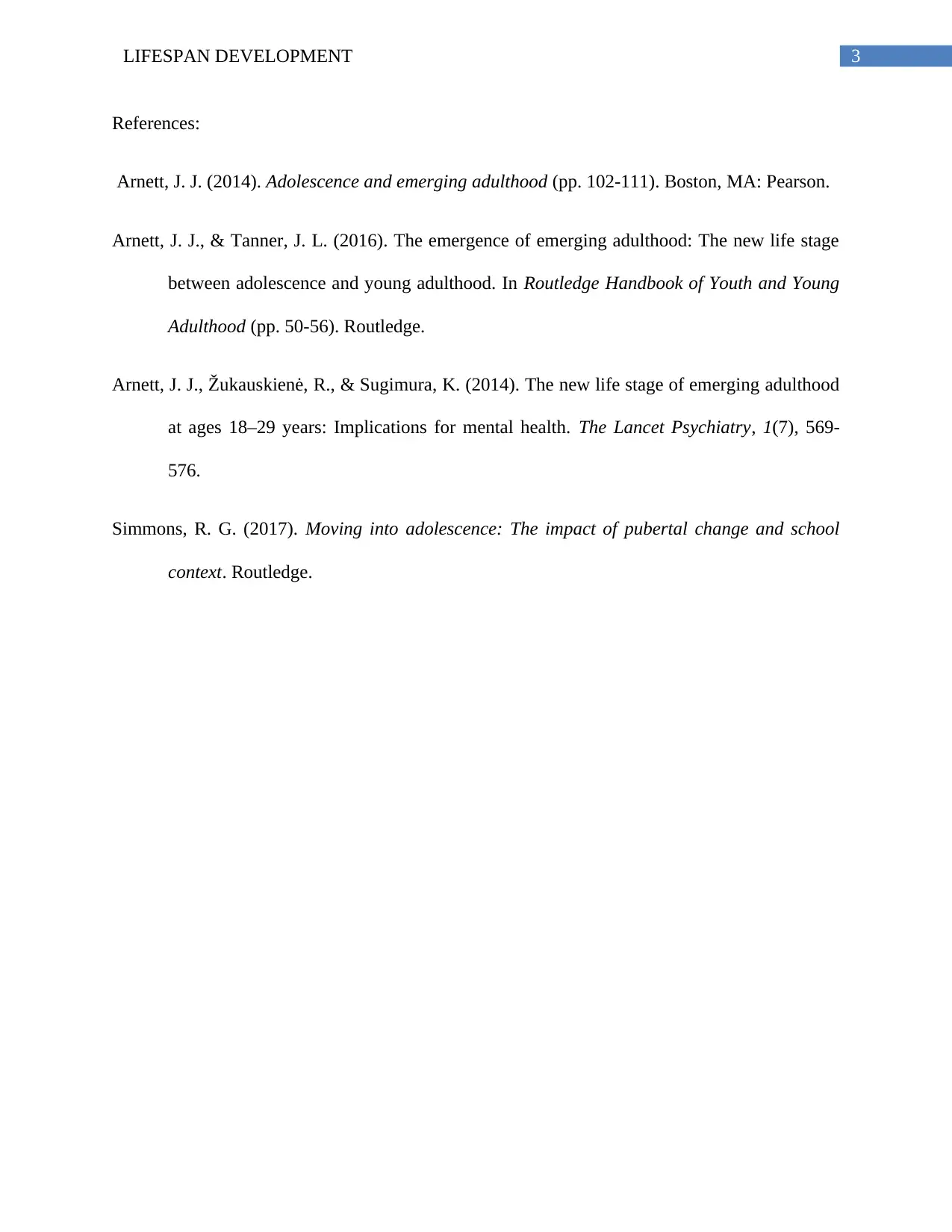Challenges of Adolescence and Adulthood: A Psychological Report
VerifiedAdded on 2023/01/04
|4
|627
|98
Report
AI Summary
This report delves into the psychological challenges encountered during the transition from adolescence to adulthood. It highlights the biological challenges associated with puberty and the emotional impacts of these changes. The report further examines cognitive challenges, focusing on the shift from concrete to formal operations, and the potential for lifelong impacts if these developmental stages are not navigated successfully. It also addresses the psychological challenges of adapting to new roles, responsibilities, and societal expectations, emphasizing the need for guidance to prevent potential issues such as misconduct or mental health problems. The report references key studies and provides a comprehensive overview of the complexities of this crucial life stage, focusing on how adolescents cope with the changes and what are the key challenges for them.
1 out of 4











![[object Object]](/_next/static/media/star-bottom.7253800d.svg)